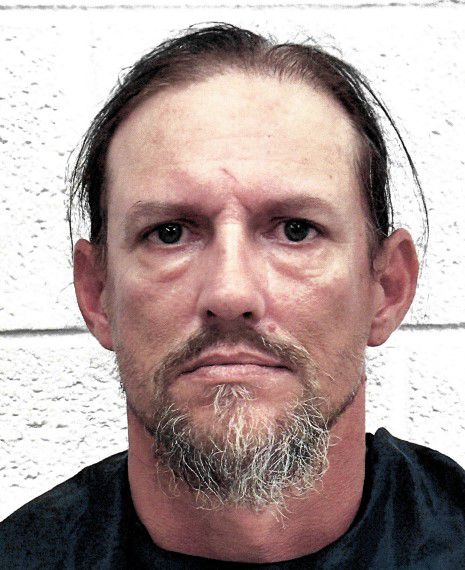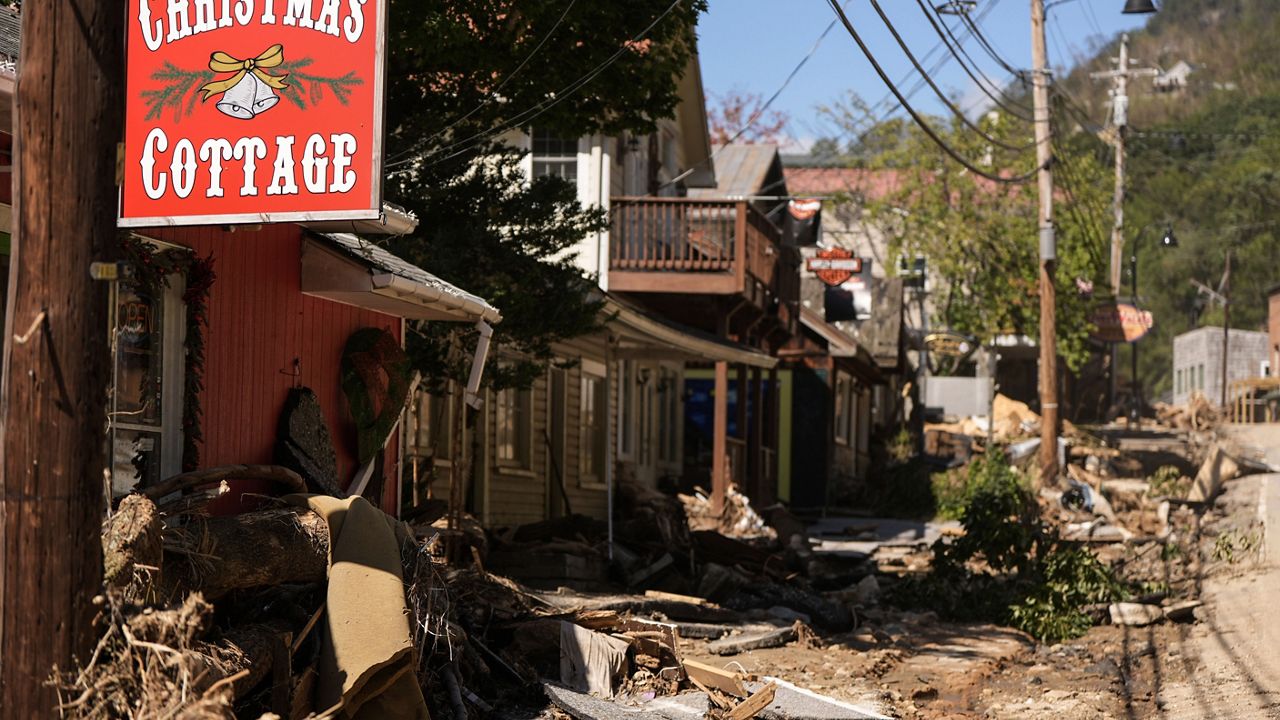A man armed with an assault rifle is accused of threatening to harm FEMA employees working on Helene recovery efforts in the Lake Lure and Chimney Rock area, the Rutherford County Sheriff's Office said. The threat also caused FEMA to change its approach to helping those affected by the storm.

Deputies said they received the call just before 1 p.m. Saturday, and quickly alerted officers with the Lake Lure Police Department and other agencies in the area helping with relief efforts. The threat was made in Polk County, according to deputies.
Officers said they identified the suspect as 44-year-old William Jacob Parsons.
Officers arrested Parsons about an hour later and charged him with "going armed to the terror of the public," which is a misdeamnor charge in North Carolina.
"Parsons was armed with a handgun and a rifle," the Rutherford County Sheriff's Office said.
Parsons received a $10,000 secured bond. He was released from jail later that night.
"The initial report stated there was truck load of militia that was involved. However, after further investigation, it was determined that Parsons acted alone and there were no truck loads of militia going to Lake Lure," deputies said.
Federal disaster workers abandoned door-to-door visits after receiving the threats that they could be targeted by a militia, officials said. The government response to Helene has been the target of runaway disinformation.
In a Facebook post, Ashe County Sheriff B. Phil Howell said the Federal Emergency Management Agency put some work on hold as it assessed the threats.
“Stay calm and steady during our recovery, help folks and please don’t stir the pot,” Howell wrote Sunday.
FEMA confirmed in a statement Monday that it adjusted operations. It emphasized that disaster-recovery centers remain open and that FEMA continues “to help the people of North Carolina with their recovery."
Workers from the agency's disaster-assistance teams — who help survivors apply for FEMA assistance and connect them with additional state and local resources — have stopped going door to door and instead are working from fixed locations while the potential threats are assessed, a person familiar with the matter told The Associated Press. The person spoke on condition of anonymity because they could not publicly discuss details of the operations.
The person stressed that FEMA was making the adjustments “out of an abundance of caution.”
FEMA did not immediately provide details on the threats.
Gov. Roy Cooper’s staff said in a statement Monday that his office was aware of “reports of threats to response workers on the ground,” as well as “significant misinformation online.” Cooper directed state law enforcement officials to work with local authorities to identify “the specific threats and rumors."
The Washington Post reported Sunday that the U.S. Forest Service, which is supporting hurricane recovery work, sent a message to multiple federal agencies, warning that FEMA had advised all federal responders in Rutherford County to leave the county immediately.
The message stated that National Guard troops had encountered “armed militia” saying they were "out hunting FEMA.”
FEMA has faced rampant disinformation about its response to Helene, which hit Florida on Sept. 26 before heading north and leaving a trail of destruction across six states.
Critics allege the agency is not doing enough to help survivors, while false rumors circulating ahead of the presidential election include claims that people taking federal relief money could see their land seized or that FEMA is halting trucks full of supplies.
Meanwhile, confusion has arisen about what the agency does and doesn’t do when disaster strikes.
State or tribal governments can reach out to ask for federal assistance. But the disaster has to exceed their ability to respond, meaning that not all disasters end up getting federal help. The president approves disaster declarations.
Once an emergency is declared, that can unleash various types of aid from FEMA. Much of what the agency does is give out money in the immediate aftermath of a disaster and for years to come.
That can include assistance to individuals affected by disasters, such as payments of $750 to pay for immediate needs like medicine or diapers. It can also mean additional money to rent an apartment because their home is destroyed or to pay for a storage unit.






